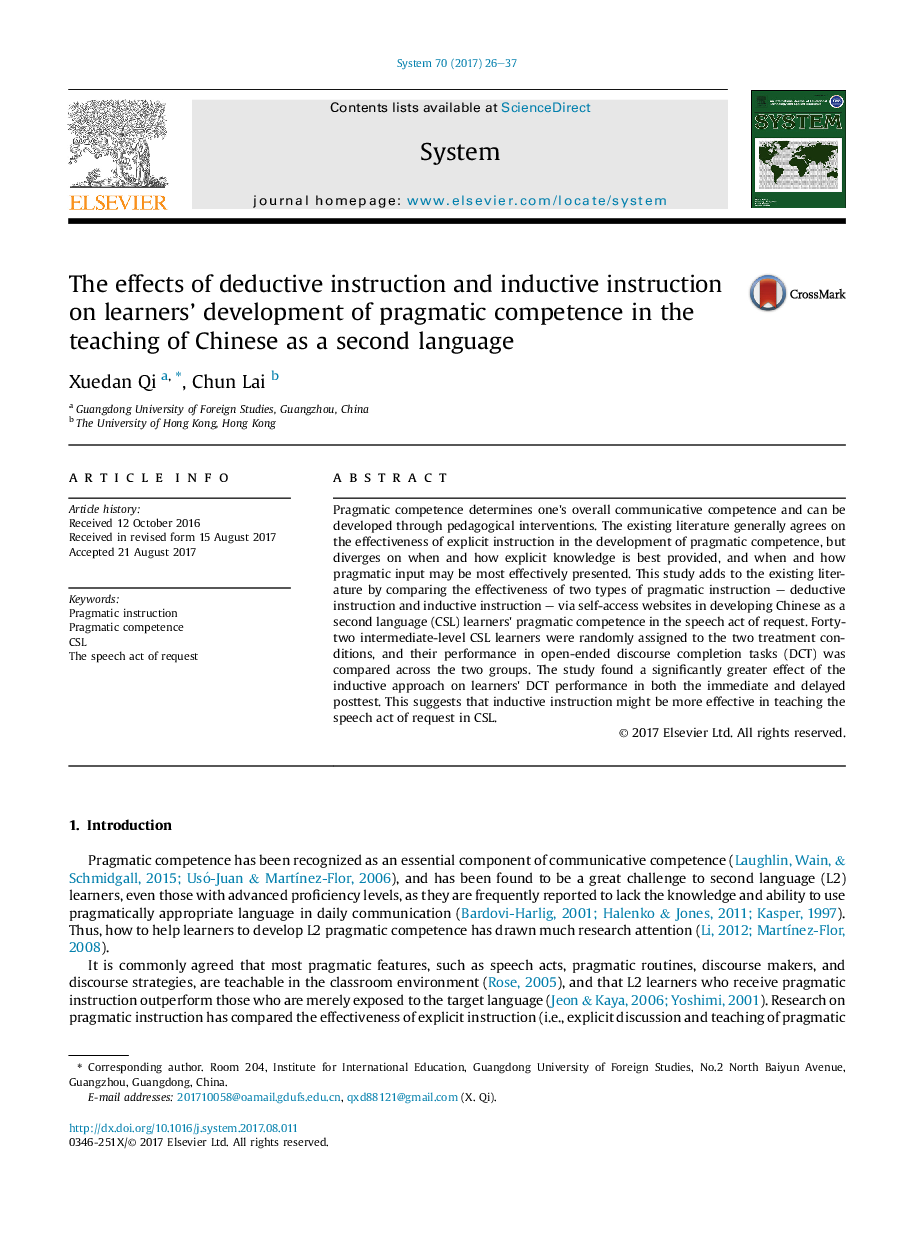| Article ID | Journal | Published Year | Pages | File Type |
|---|---|---|---|---|
| 4941299 | System | 2017 | 12 Pages |
Abstract
Pragmatic competence determines one's overall communicative competence and can be developed through pedagogical interventions. The existing literature generally agrees on the effectiveness of explicit instruction in the development of pragmatic competence, but diverges on when and how explicit knowledge is best provided, and when and how pragmatic input may be most effectively presented. This study adds to the existing literature by comparing the effectiveness of two types of pragmatic instruction - deductive instruction and inductive instruction - via self-access websites in developing Chinese as a second language (CSL) learners' pragmatic competence in the speech act of request. Forty-two intermediate-level CSL learners were randomly assigned to the two treatment conditions, and their performance in open-ended discourse completion tasks (DCT) was compared across the two groups. The study found a significantly greater effect of the inductive approach on learners' DCT performance in both the immediate and delayed posttest. This suggests that inductive instruction might be more effective in teaching the speech act of request in CSL.
Keywords
Related Topics
Social Sciences and Humanities
Arts and Humanities
Language and Linguistics
Authors
Xuedan Qi, Chun Lai,
